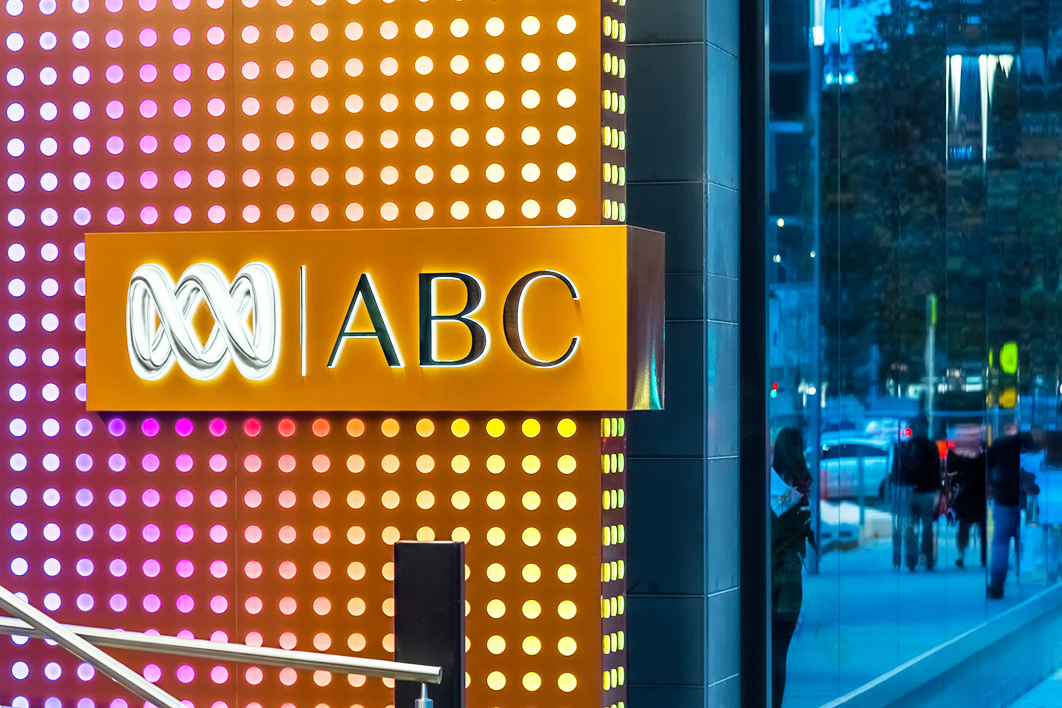Writing in Inside Story recently, Geraldine Doogue pictured our ABC standing at the edge of a “demographic cliff.” She dealt with some complex questions before leaving us with the Joni Mitchell admonition: you don’t know what you’ve got till it’s gone.
Like others, I often wonder why the ABC I have so enjoyed and relied on can be irritating and sometimes infuriating. If it was on the edge of a cliff, there are days I’d have given it a push. Often that’s when the ABC seems to have no idea what it’s doing or no idea why people use it.
I look at ABC websites that sometimes have PR blurbs presented as news content. I watch Insiders who insist on framing every issue with their personal opinion, the first-person pronoun in heavy employ. News programs give me convoluted versions of a policy or event’s implications, but nothing of the actual policy or event itself. Above all, streams of programming have themes but not surprises. Lots of answers. Too few questions.
Ms Doogue raised the possibility (I think) of the ABC’s irrelevance. It’s the question that all media have had to face since the distribution of content was inverted. What used to be a limited, controlled flow of information and entertainment is now a dispersed, popular network that is both ubiquitous and constant. Technology allows people almost anywhere to view, read or hear almost anything: from live news like the Georgia grand jury’s indictment of Donald Trump to the video replay of all twenty minutes of the Matildas’ World Cup penalty shootout with France. Commercial aggregators like Apple and Netflix offer seemingly unlimited choices. Very soon algorithms will interpret your question, search the digital universe and present you with a composed briefing (which may be what News Corp sees as the future for “news”).
Former BBC director-general Mark Thompson, who was hired by the New York Times when it was mired in poor performance (and fixed it) and has now been picked to repair the ailing CNN, made a useful point recently. American television, he said, seemed to be stuck in the 1980s. With endless sources of opinion, what people really want is accurate and relevant news. Who’d have thought it?
Since the moment consumers began to find serious value in digital channels, the traditional media have been struggling — most often with their financial sustainability, but almost always with their direction and purpose. When the media most needed to revisit fundamentals, many leading players did the opposite — they chose the values that suited them.
Audience numbers are the traditional measure of media strength. Commercial media generally pursued large audiences to justify their advertising rates. The newspapers or broadcasters that captured the largest consistent audiences generally made the most money.
Digital media fractured that concept in two ways. Aggregators of audiences (Google, Meta) offered advertisers far bigger audiences than any incumbent — and did so at a fraction of the cost. Other digital arrivals (Netflix, YouTube) catered extremely well to particular interests and were able to commercialise that offering at a global level; driven by consumers, they turned media measurement on its head.
But much of the established media stuck with tradition and used raw, aggregate numbers to measure their performance. This is why a lot of news media gave away valuable content online, at least in the early years of the internet. More importantly, the measurement of digital traffic encouraged a trend towards crude preferences: by favouring content that drives traffic it promotes popularity over value. Commercial media that didn’t pursue inherent value struggled to get enough people to pay.
The logical endpoint for a content business chasing pure numbers is fairly obvious. Pornography, or its intellectual equivalent, gets eyeballs and doesn’t cost much. People like Tucker Carlson and Alan Jones — not to mention Rupert Murdoch — discovered this formula ages ago.
The ABC has a different problem. The people who pay for the ABC are taxpayers and the people who decide how much they pay are politicians. Why pay? Because Australians want and value a service that isn’t sustained by commercial means. That is, they want something that commercial providers don’t provide. So the ABC should have been better placed than commercial media to respond to a media environment driven more by value than by mass. Yet it seems to have fallen for the same error that its commercial counterparts did.
While ABC aggregate audiences are holding up, its own measures of value, still strong, are declining. But these data don’t tell the full story.
Digital media aggregated audiences but also disaggregated content creation. People who have common preferences and prejudices can stay in the lane they prefer. For a person interested in news, it’s bit like walking down a busy street and asking each person for an opinion. Or, for those who don’t like discordant views, like choosing only the news offered by one’s priest or football coach.
I would have expected the ABC to start dealing with the new environment by asking some very blunt questions. Like: why are we different? What is value for our constituents? How do we impose discipline on our work to deliver value to the people who pay for it?
Jeff Bezos was, I think, one of the first to align a media strategy closely with value. One of the interesting results, to my eyes, is that his Washington Post is much more about news — facts that inform — than its competitors are. Bezos measures everything, but his metrics are about value and how the people who pay judge value.
The ABC does a lot of things well, but it doesn’t do them consistently. I suspect the reason for that is the absence of discipline guided by a clarity about what its paying customers (taxpayers) value. A strong emphasis on news and facts, clearly presented, would overcome the natural tendency of traditional media towards celebrity thinking. (Seriously, do all those TV and radio folk really think people want their opinion on what the Reserve Bank does?)
The ABC could be more obviously bringing Australia into our homes. It could be more obviously filling gaps in the media. It could be asking really interesting questions — not gotcha questions — and providing really helpful information.
I fear the ABC will fail to win sustained support and resources because it didn’t ask the right questions about the new media environment. The main one being: what is value for Australian taxpayers? •




